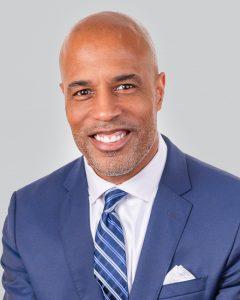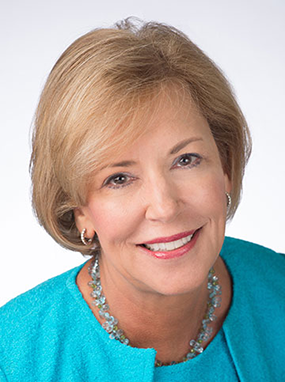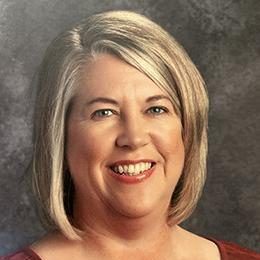VOICES
Equity drives Learning Forward's vision
By Frederick Brown and Stephanie Hirsh
Categories: EquityOctober 2018
Vol. 39 No. 5
At Learning Forward, we fundamentally believe every child deserves access to excellent teaching and learning every day, regardless of his or her ZIP code or family income. Socioeconomic conditions, race, gender, ethnic background, and other factors should not be predictors for educational attainment.
We believe school systems and other learning environments have to be relentless in addressing the issue of expanding learning opportunities for each and every student while building on the strengths all children bring to the classroom.
These beliefs are fundamental to our approaches to achieving equity. They underlie the decision the board of trustees made earlier this year to explicitly include equity in Learning Forward’s vision statement: Equity and excellence in teaching and learning.
We recognize that districts and schools have many tools to address their equity challenges, and we believe effective professional learning can play a crucial role. How a district defines equity will determine the role professional learning can play in helping the system achieve its goals.
For example, if a district has a goal focused on closing achievement gaps for populations that haven’t performed as well as others, the professional learning strategy might include a focus on helping teachers try different approaches, differentiate to meet learning needs, and find ways to build on the strengths of all students.
Another equity goal for a district could be increasing the diversity of its teaching force to more closely align to its student demographics. In this case, the professional learning strategy could include supporting principals and central office staff in strategies to attract, seek out, and support teacher candidates. Such a strategy would include developing an induction process that values culture, embraces diversity in the teaching force, and builds the efficacy of new teachers.
A district’s equity strategies connect directly to the attitudes and beliefs of its workforce. The professional learning strategy can help central office and building staff engage in deep exploration of their values, beliefs, and assumptions about children who have life experiences different from their own.
This professional learning approach is not something a district or school accomplishes in a two-hour sit-and-get session or a professional development day for all staff at the beginning of the year. Instead, it requires an ongoing commitment to understanding the core issues and creating ways of working that allow educators to return to the topic, practice strategies, receive feedback, and assess their new practices and behaviors.
This professional learning strategy also requires a firm commitment from district leaders to stay engaged until new behaviors are sustained and equity goals are met.
As we consider and clarify our own approaches to equity, we see that some students have not been served by education. While we recognize that professional learning is essential for all educators to improve, we changed our vision to include equity because we recognize that educators and the students they serve are in vastly different contexts and situations.
We are making a commitment to explore pathways that support those educators, children, and schools that have traditionally been underserved and those that have the greatest needs. Our commitment to equity is a significant driver in our recent shift to explore in depth the intersection of curriculum and professional learning.
Our commitment to equity also undergirds Learning Forward’s Standards for Professional Learning. When we revised the standards in 2011, we embedded the concept of equity throughout. We believed then, as we do now, that when a district aligns its practices to the standards, each and every child will experience excellent teaching and learning every day.
However, we know that we must do more. While our new vision statement is an important step for our organization, it isn’t the only step to take. Going forward, we will view all of our strategies through an equity lens with the goal of making sure our efforts will help districts and schools ensure each and every child exceeds provincial, state, and local standards.
We also commit to reflect on our own assumptions, beliefs, and practices and how they can evolve. This is also a central task of high-quality professional learning. In that spirit, we are reflecting on these questions and issues:
- In what other ways should we define equity? In what other ways might districts and schools define it?
- What strategies and drivers have demonstrated success in ensuring that underserved students achieve high standards?
- Where do the biggest gaps lie for students? How can we influence policies and practices related to professional learning to address those gaps?
- How can the Standards for Professional Learning be more explicit in addressing issues of equity?
- What types of learning might we craft that help systems address their equity challenges and opportunities?
As we continue to grapple with our equity questions, we ask you to send us yours. What questions and issues are you reflecting on? What new ideas or reflections does reading this issue of The Learning Professional bring up for you? Please share them with us.
Categories: Equity
Recent Issues
LEARNING TO PIVOT
August 2024
Sometimes new information and situations call for major change. This issue...
GLOBAL PERSPECTIVES
June 2024
What does professional learning look like around the world? This issue...
WHERE TECHNOLOGY CAN TAKE US
April 2024
Technology is both a topic and a tool for professional learning. This...
EVALUATING PROFESSIONAL LEARNING
February 2024
How do you know your professional learning is working? This issue digs...












